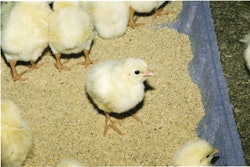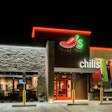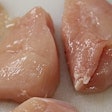Numerous developments surround corn-based ethanol and the animal agriculture industry is stopping at nothing to be certain our voices are heard on Capitol Hill, in the regulatory agencies and by the media.
In an effort to get the Congress to revisit the ethanol mandate, the National Turkey Federation (NTF), the National Chicken Council (NCC) and 20 other environmental, retail, hunger, Hispanic and food industry groups have launched the Food Before Fuel Campaign and a Web site, www.foodbeforefuel.org.
The campaign is a comprehensive legislative, regulatory and public relations effort.
In a press conference following the June launch, NTF chairman Paul Hill expressed his concern over the dramatic diversion of corn to the nation's gas tanks that had already led to alarmingly higher feed costs. Hill noted that flooding in his home state of Iowa has moved the debate beyond simply the cost of grain, with actual availability of grain becoming an issue.
The press conference highlighted the close of EPA's comment period on the state of Texas' petition submitted by Texas Gov. Rick Perry, calling for a 50-percent reduction in the federal ethanol mandate, the Renewable Fuels Standard (RFS).
Alarming potential impact
NTF submitted comments to the EPA in support of the Texas petition, demonstrating that the RFS has resulted in turkey feed costs increasing by $1 billion since fall of 2006. NTF, NCC and the American Meat Institute (AMI) also asked Tom Elam of FarmEcon LLC to conduct a detailed study of the RFS and Midwest flooding to determine the impact on food and fuel prices.
Elam's study indicates that the ethanol mandate is giving Americans little relief at the gas pump, reducing prices, at most, by an average of 4 cents per gallon. By contrast, the RFS and flooding combined to have a real impact on food inflation. The results were so compelling that NTF, NCC and AMI were joined by the National Cattlemen's Beef Association, National Milk Producers Federation, National Pork Producers Council and United Egg Producers in formally submitting the study to EPA.
Elam's research demonstrates that unchanged, the RFS would result in the Consumer Price Index (CPI) for beef in 2008/09 increasing more than 42 percent; chicken and milk would rise more than 26 percent; pork almost 22 percent and turkey 14 percent. The cost of eggs would increase 70.3 percent.
If the EPA reduced the RFS by 50 percent, these increases would drop by more than half. In some cases, the increase would be cut by two-thirds. The increase in the CPI for food at home would drop from an overall 7.1 percent to 2.5 percent.
Significant food inflation
The letter to the EPA said, "Many have debated which has had the biggest impact on food inflation: our nation's renewable foods policy or higher fuel prices. Dr. Elam's study proves this debate is beside the point. His study demonstrates conclusively that regardless of whether it is the greater or the lesser culprit our renewable fuels policy is having an impact on food inflation and that making the requested adjustment in the RFS will reduce food inflation significantly."
Elam also made another striking point. If the United States turned all the corn in the world into ethanol, it would still have to import oil. "Of course," he adds, "no one would have any food."
The EPA is expected to rule on the petition in late July, but it is unclear whether the mounting evidence of the damage the RFS is doing to the economy will be enough to reverse in 30 days an ethanol policy that has been 30 years in the making.



















